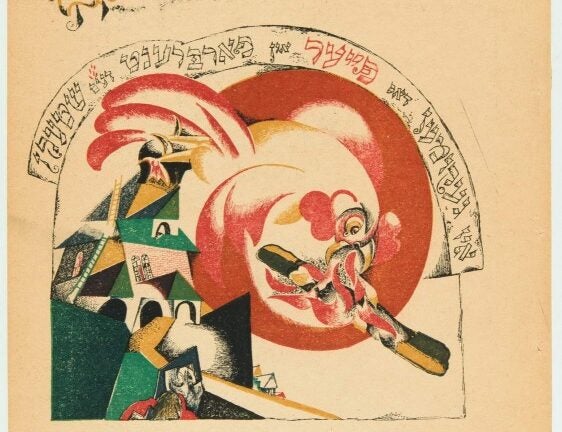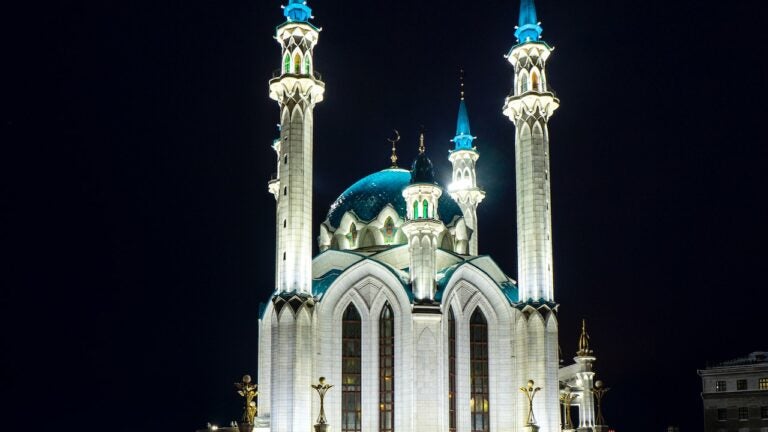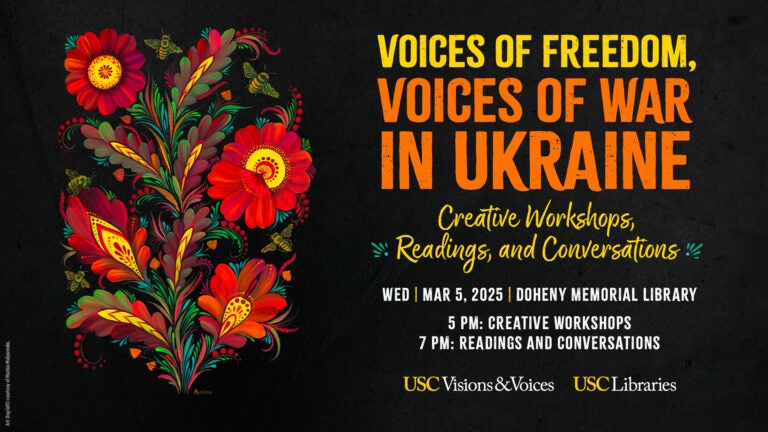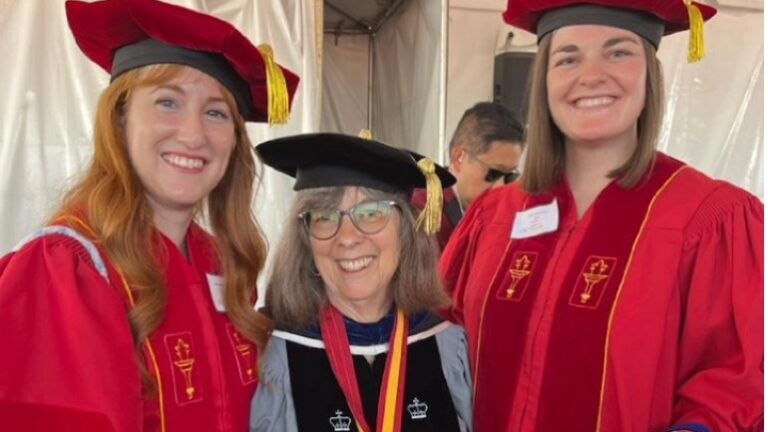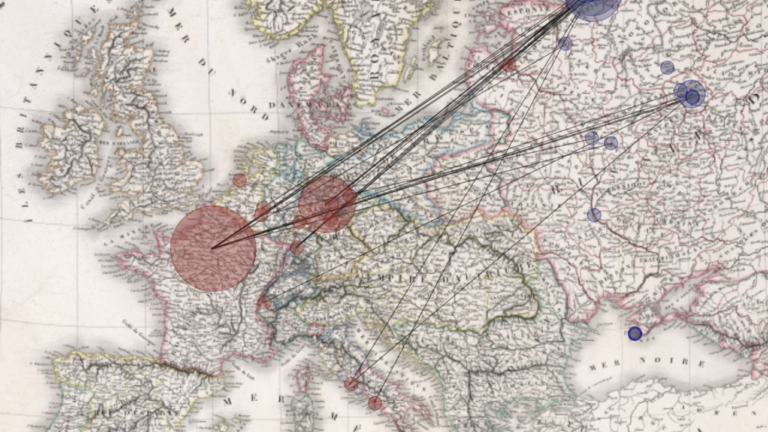Advanced Degrees in Slavic Languages and Literatures
The doctorate in Slavic Languages and Literatures is designed to prepare students for a career of teaching and scholarship at the university level. It provides a thorough grounding in Russian literary and cultural history as well as in the theoretical perspectives current in the field. Elective coursework, particularly at the upper level, allows students to take advantage of the department’s expertise in such additional areas as Russian art and film. The linguistic component of the curriculum together with the experience as a teaching assistant in Russian language courses that many students gain also serves as preparation for positions involving language teaching. Depending on departmental offerings, further study in a second Slavic language and culture may also be possible.
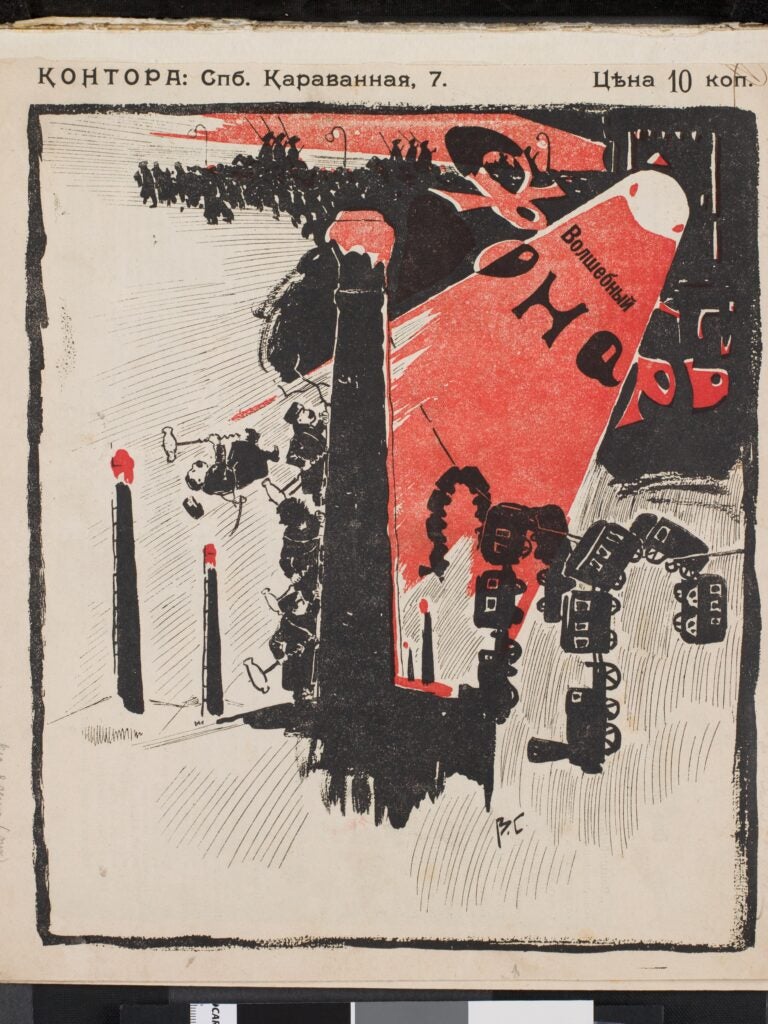
M.A. in Slavic Languages and Literatures
The M.A. degree is intended only as a transitional degree in the process of completing requirements for the Ph.D. in Slavic Languages and Literatures. The department does not accept applicants for a Master of Arts degree in Slavic Languages and Literatures. The M.A. portion of the program comprises 30 units. For complete information on degree requirements, see the university catalogue.
Required courses for the M.A.
SLL 500 Topics in Advanced Russian (2 x 4 = 8 total units)
501 Proseminar in Russian Literature (3 units)
532 18th Century Russian Literature (3 units)
546 The Russian Novel (3 units)
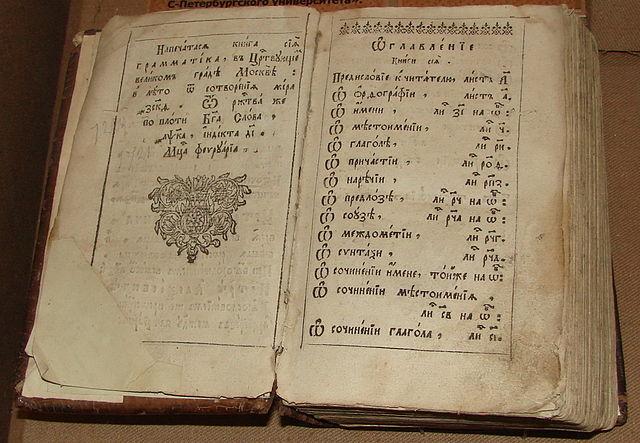
Ph.D. in Slavic Languages and Literatures
Students pursuing the Ph.D. in Slavic Languages and Literatures are required to complete a minimum of 60 units of course work beyond the baccalaureate. In addition to the 30 units completed toward the M.A., students must complete the following courses.
Required Courses for the Ph.D.
In addition to the courses required for the M.A. listed below, students must take:
545 19th Century Russian Poetry (3 units)
550 Russian Modernism (3 units)
555 Soviet Literature I (1917-1953) (3 units)
Two of:
SLL 650 Seminar in Russian Literature (3 units)
SLL 660 Seminar in a Single Author or Work (3 units)
SLL 665 Seminar in Russian Culture and the Arts (3 units)
Plus electives from SLL or relevant offerings in CSLC, COLT, ENGL, FREN, SPAN etc., as approved by the department. At least 9 of these units must be completed in SLL.
Additional Requirements for the Ph.D.
1. Demonstrate proficiency in spoken and written Russian
2. Demonstrate reading knowledge in two of the following: French, German, or a second Slavic language
3. Pass the qualifying examination, which must be taken after all course work has been completed;
4. Complete and successfully defend a dissertation.
5. For complete information on degree requirements, see the university catalogue.
Elective Graduate Certificates
With the approval of the Director of Graduate Studies and as long as the additional coursework does not interfere with progress towards the degree in Slavic, students may pursue any certificates offered within Dornsife. Pursuing certificates outside Dornsife is possible only with special approval; any students who have a demonstrable research need for such a certificate should contact the Director of Graduate Studies. Below are certificates offered within Dornsife.
Certificate in Gender Studies
The course requirements for this certificate are: SWMS 560, the core course in Feminist Theory, plus two or three other courses from the list of graduate level courses, 500-level and above (totaling 12 units), which are offered through Gender Studies or are cross-listed with them. It is also required that gender analysis be part of the student’s master’s thesis or doctoral dissertation. In lieu of this, a student may substitute an oral exam on three research papers written within the area of women’s or men’s studies and on relevant graduate work pertaining to feminist scholarship. For additional information, contact the Gender Studies Program.
Certificate in Visual Studies
To receive this certificate, students must take MDA/VIST 501 (“Introduction to Visual Studies: Methods and Debates”), a team-taught MDA/VIST 599 course, and two other graduate seminars from an approved list of relevant courses, 500 and above, for a total of at least 16 units. In addition to the completion of these course requirements, students must focus on visual studies as part of their doctoral dissertation. Alternatively, they may take an oral examination based on three research papers they have written within the context of their visual studies coursework. For details, contact the Visual Studies Graduate Certificate program.
Certificate in Jewish Studies
The Graduate Certificate in Jewish Studies (GCJS) is offered by the School of Religion in USC Dornsife College. It is designed to give graduate students pursuing research in areas related to Jewish Studies (including Judaism as a religion, Jewish history, Jewish thought, etc.) a solid grounding in the field, as well as mentorship from Jewish Studies faculty. Students enrolled in the Graduate Certificate are eligible to apply for research funds allocated to this program by the Casden Institute.
Certificate in Religious Studies
The USC School of Religion will offer a Graduate Certificate in Religious Studies (GCRS) to graduate students in any school of USC. The GCRS program will allow students across diverse fields in the humanities, social sciences, and professional schools to take advantage of the broad knowledge and expertise of Dornsife’s Religion faculty. For details, please visit the Certificate in Religious Studies information page.
Certificate in Translation Studies
Translation Studies is a discipline that considers the production and analysis of translation and interpretation. While other programs usually stress strictly literary translation, this program considers translation in a broader sense that encompasses languages, literatures, cultures, and media. This certificate is offered through the Department of Comparative Literature.
Certificate in Science and Technology Studies
This certificate is offered by the USC Dornsife Center on Science, Technology, and Public Life (STPL), which serves as a platform for collaborative research, graduate training, and public engagement on problems at the intersection of science, technology, and society. Requirements can be found on the STPL website.

